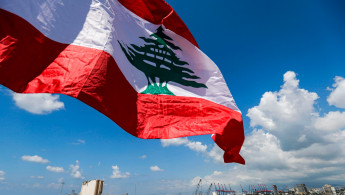US calls for return of Gulf relations with Lebanon
The United States called on Saudi Arabia and its Gulf allies to restore relations with Lebanon on Wednesday, saying the struggling nation needed international support.
"Our position is that diplomatic channels should remain open if we are to seek to improve the humanitarian conditions of the Lebanese people," State Department spokesman Ned Price told reporters.
The statement comes a day after US Secretary of State Antony Blinken met with Lebanese Prime Minister Najib Mikati on the sidelines of the UN climate summit in Glasgow.
Blinken said the United States would provide support to Lebanon as it seeks to exit a historic economic crisis and as Mikati struggles to bring political stability after a power vacuum of more than one year.
On Friday, Saudi Arabia gave Lebanon's ambassador 48 hours to leave, recalled its envoy from Beirut and suspended all imports from Lebanon.
Kuwait and Bahrain quickly took similar measures and the United Arab Emirates recalled its diplomats from Beirut in solidarity with Riyadh.
The Sunni-dominated nations took action in anger at the influence in Lebanon of Hezbollah, the Iranian-backed Shia movement.
Saudi Arabia said it was responding to remarks by Information Minister George Kordahi from August, before he took office.
In an interview, Kordahi said that Iran-backed Houthi rebels, who are under withering assault from a Saudi-led coalition, were "defending themselves" against an external aggression."
Price said the United States did not have a position on whether Kordahi should stay in his position but voiced understanding for Saudi concerns.
"The notion that the Houthis have been anything but a destabilising force and a force that has inflicted additional hardship on the people of Yemen, that is not an idea that we recognise," Price said.





 Follow the Middle East's top stories in English at The New Arab on Google News
Follow the Middle East's top stories in English at The New Arab on Google News
![The UAE is widely suspected of arming the RSF militia [Getty]](/sites/default/files/styles/image_330x185/public/2024-11/GettyImages-472529908.jpg?h=69f2b9d0&itok=Yauw3YTG)
![Netanyahu furiously denounced the ICC [Getty]](/sites/default/files/styles/image_330x185/public/2024-11/GettyImages-2169352575.jpg?h=199d8c1f&itok=-vRiruf5)
![Both Hamas and the Palestinian Authority welcomed the ICC arrest warrants [Getty]](/sites/default/files/styles/image_330x185/public/2024-11/GettyImages-2178351173.jpg?h=199d8c1f&itok=TV858iVg)